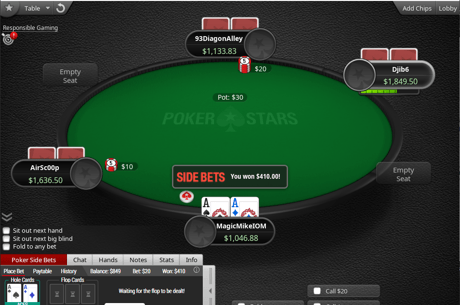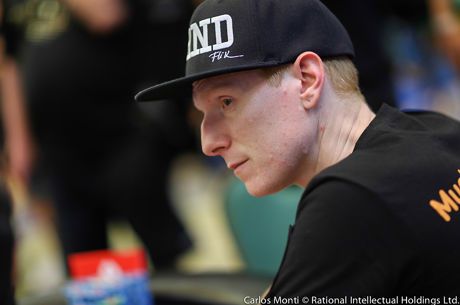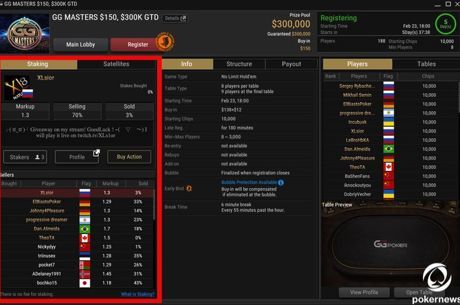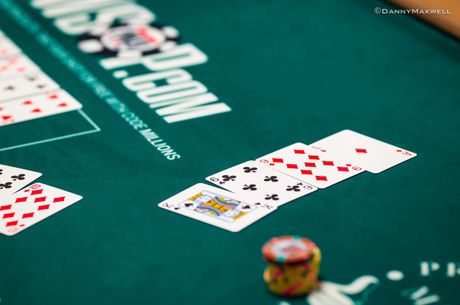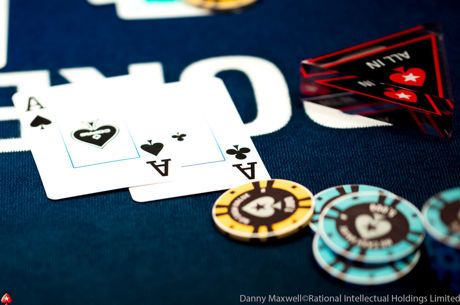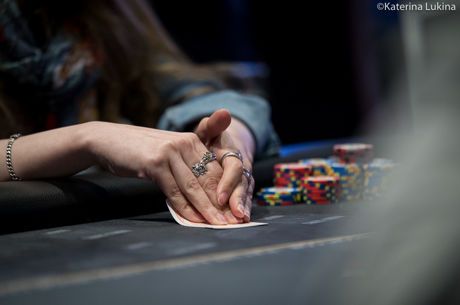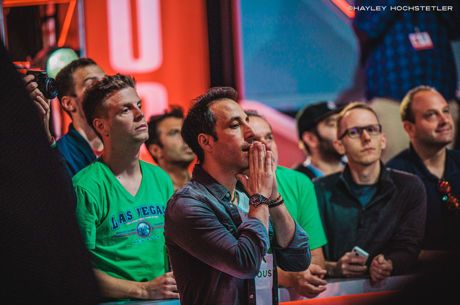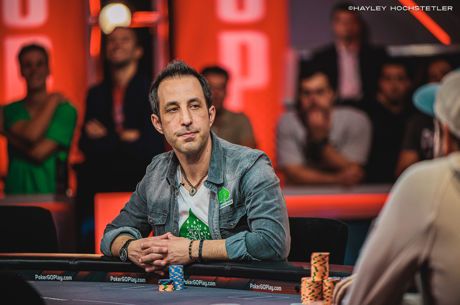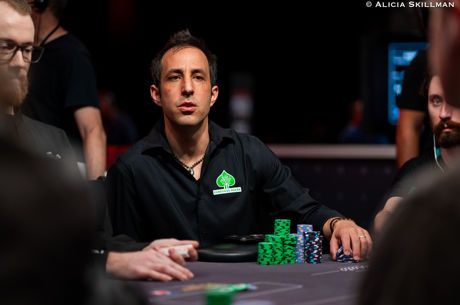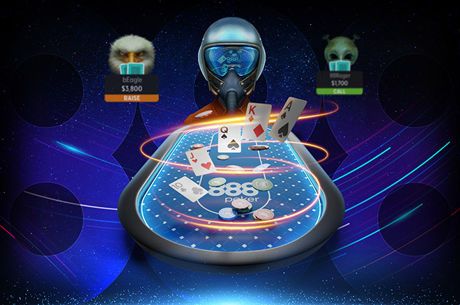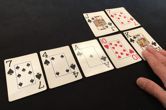How to Make a Deal in a Poker Tournament: ICM, Chip Chop, and More
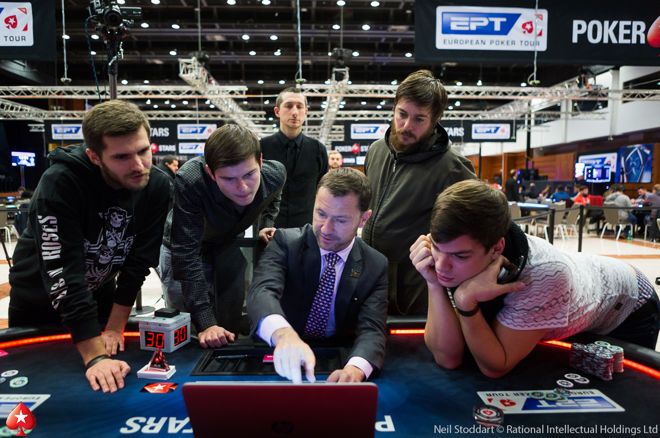
It looks like you made it way past the bubble and secured a spot at the final table in a multi-table poker tournament at your local card room. Congratulations!
At this point, the money is starting to get serious with increasing pay jumps following each knockout. Suddenly, one of your fellow opponents brings up the c-word:
"Do you guys wanna chop?"
You probably knew it was coming, but how should you respond?
Before we explore possible answers, let's first attempt to understand the question. What does it mean to "chop"?
(Hint: It's not as straightforward as you might think.)
What Does It Mean to 'Chop'?
In a nutshell, a "chop" — or, more formally, a "deal" — refers to the players' agreement to redistribute the remaining prize money among the current contestants in a way that everyone agrees upon.
Usually, when a deal is proposed, the tournament clock stops so that the players can discuss their options.
If they reach a universal agreement, the tournament ends and the prize money is distributed accordingly.
In some cases, a portion of the prize pool is set aside for which to play and the tournament continues until the winner claims that last share.
If even just one player disagrees, the other players can either propose a different deal or the tournament resumes.
If the above sounds a bit vague or open-ended, it's because it is!
As a matter of fact, most card rooms, having no horse in the race, would happily honour pretty much anything players come up with, so that they keep their customers satisfied and move on to the next event.
READ ALSO: Visiting a New Poker Room? You Better Ask These 7 Questions Before You Play
However, without any standard guidelines in place, players would have a hard time coming up with a mutually accepted proposal.
They do have conflicted interests after all, as they all want to make as much money as possible from a limited prize pool.
The Standard Chops in Poker
Luckily, there are some standard types of deals used widely in the industry. Let's look at the three most popular ones.
- Equal Chop - The most straightforward type of deal where the remaining players distribute the prize money evenly.
- Chip Chop - A slightly more elaborate method where each player gets the same percentage of the remaining prize pool as their percentage of chips in play.
- ICM Chop - The most complex of the methods. It calculates the chance of each possible final ranking (based on current chip distribution) and weights it accordingly to estimate the expected return for each player (assuming players each possess an equal amount of skill).
How to Calculate a Deal at the Final Table
This is a lot to digest, so let's jump into some examples.
For the sake of simplicity let's assume that there are three players left:
- Alice
- Bob
- Charlie
We'll also assume with these deals that no money is being set aside for which to play after the deal is done — that is, with each we're figuring out how to chop all of the remaining prize money.
- Alice has 50,000 in chips
- Bob has 30,000 in chips
- Charlie has 20,000 in chips
This makes for an easy 50%-30%-20% distribution which will lead to easier calculations. The scheduled payouts are $900 for 1st place, $400 for 2nd, and $200 for 3rd for a total prize pool of $1,500. This is summarized in the two tables below:
| Rank | Prize | Player | Chips | |
|---|---|---|---|---|
| 1st place | $900 | Alice | 50% | |
| 2nd place | $400 | Bob | 30% | |
| 3rd place | $200 | Charlie | 20% |
With the above assumptions in mind, let's see what each player's share would be if they were to agree to split the prizes according to one of the three deal-making methods listed above.
LEARN: 5 Tips to Survive with a Short Stack in Poker Tournaments
Equal Chop
As the most straightforward of the methods, this will simply net each player an equal share of the total prize pool.
That is, each player will receive one-third of $1,500 or $500.
| Equal Chop | Prize |
|---|---|
| Alice | $500 |
| Bob | $500 |
| Charlie | $500 |
Chip Chop
For this option, the calculations remain rather simple.
Since Alice has 50% of the chips, she will receive 50% of the $1,500 prize pool or $750. Similarly, Bob will get 30% of $1,500 ($450) and Charlie 20% of $1,500 ($300).
| Chip Chop | Prize |
|---|---|
| Alice | $750 |
| Bob | $450 |
| Charlie | $300 |
ICM Chop
Often what will happen when the "chip chop" numbers don’t look good to everyone is for someone to request that "ICM" figures to be produced, with the acronym standing for "Independent Chip Model".
The topic of ICM deal in poker is too complicated for us to delve into that deeply here — it’s relevance to tournament poker extends beyond just the area of final-table deals. But the concept behind it is easy enough to understand.
Like with the "chip chop" method, the ICM method also assigns cash value to the chips in play.
However, ICM does not consider each chip to be of equal value, but rather accommodates for the fact that chips change in value as a tournament goes along.
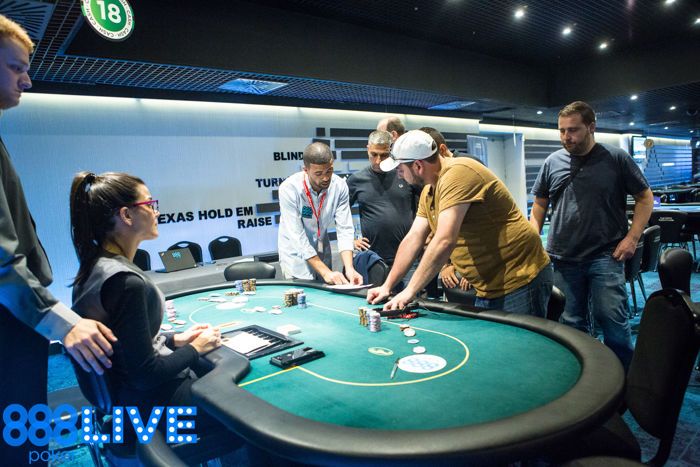
It’s a calculation that takes into account each player’s chance of finishing in each of the remaining positions (based on the players’ relative stacks), then multiplies those percentages and adds them up to figure out a theoretical cash value for each player’s stack.
Many tournament players think the ICM is where things get complicated, but also more fair.
No one is going to be offered more than first-place money according to an ICM-based deal, nor is anyone going to be asked to take a deal in which they’d receive less than what the next eliminated player is scheduled to receive.
By way of comparison, let’s look again at the scenario listed above and see how the payouts would go if the ICM method was used.
Assuming that Alice deserves 50% of the entire prize pool is a little absurd if you think about it. If anything, she only deserves 50% of the first prize and much smaller pieces of lower prizes.
Unlike the "chip chop" method, the "ICM chop" method is more realistic in the way it estimates the chances of all of Alice's possible results, including ones where she doesn't finish first.
For instance, given the current stacks, a scenario in which Charlie comes first, Alice second, and Bob third (C-A-B) is relatively unlikely and it will only happen about 12.5% of the time.
For the mathematically inclined, that number is calculated as follows.
All else being equal, Charlie, with 20% of the remaining chips, has a 20% shot at the first place. From there, Alice has a 5-to-3 chip lead on Bob or 62.5% chance of winning second.
Altogether, then, we have a 0.20 * 0.625 = 0.125 = 12.5% chance of that C-A-B outcome happening.
Without a deal, if such a C-A-B scenario occurs, Alice will win $400 (second-place money), Bob will win $200 (third-place money), and Charlie will win $900 (first-place money).
Of course, because that outcome only happens about 12.5% of the time (1 out of 8 times), we have to scale that payoff down by multiplying it by 0.125 or dividing it by 8 (which is the same thing mathematically).
Either way, the expected payoff for the 3 players should only be 50-25-112.5 (see the "C-A-B" row in the table below).
For the sake of due diligence, I summarized the chances and expected payoffs for each of the six possible outcomes of the tournament. For simplicity, I also rounded the results to the nearest dollar.
| Outcome | Chance | Payoff | Alice | Bob | Charlie | Totals: |
|---|---|---|---|---|---|---|
| A-B-C | 30% | 900-400-200 | $270 | $120 | $60 | $450 |
| A-C-B | 20% | 900-200-400 | $180 | $40 | $80 | $300 |
| B-A-C | 21.4% | 400-900-200 | $86 | $193 | $43 | $321 |
| B-C-A | 8.6% | 200-900-400 | $17 | $77 | $34 | $129 |
| C-A-B | 12.5% | 400-200-900 | $50 | $25 | $113 | $188 |
| C-B-A | 7.5% | 200-400-900 | $15 | $30 | $68 | $113 |
| Totals: | 100% | $618 | $485 | $397 | $1,500 |
- Outcome: The order in which they finish. C-A-B means: Charlie is 1st, Alice is 2nd, Bob is 3rd.
- Chance: The likelihood of the outcome. The outcome C-A-B will happen 12.5% of the time.
- Payoff: The assigned prizes in alphabetical order. 400-200-900 means Alice will be 2nd, Bob 3rd, and Charlie 1st.
- Horizontal totals: The fraction of the total prize pool based on the chance. $188 = 12.5% * $1,500, etc.
- Vertical totals: The results of the ICM. Alice deserves $618, Bob $485, and Charlie $397
- All other cells: The expected payoff if the certain outcome occurs. Alice deserves $50 from the C-A-B outcome, etc.
All in all, this leads to the following expected payoff table:
| ICM Chop | Prize |
|---|---|
| Alice | $618 |
| Bob | $485 |
| Charlie | $397 |
If you think the above calculations seem unapproachably complex, you are not alone!
The calculations are a little tedious to explain — especially at the end of an already long article — but understand that essentially what’s happening is each player’s chip stack is being looked at as representing the chance that player will be finishing first, second, third, or fourth.
Then, those percentages are multiplied by the payouts and the totals are added up to indicate amount the player is due (an amount referred to in some contexts as the player’s "poker equity" in the tournament).
Luckily, these calculations are not meant to be done at the poker table. Instead, players and casinos alike typically use one of the many ICM apps and calculators that can be found online and can be used for free.
There you have it... a full breakdown of the three most popular chops used in card rooms today!
This brings us back to our original question, "Do you guys wanna chop?" To which we now can add, "If so, how do you guys wanna chop?"
Figuring out the best way to answer that question will be the topic of the second part of our conversation, so stay tuned.
Again, the answer is not as straightforward as you might think!
Should You Make a Deal?
Now that you know how to calculate an ICM deal in poker and you see why his is the fairest choice for everyone - let's answer to another question.
Should you make a deal?
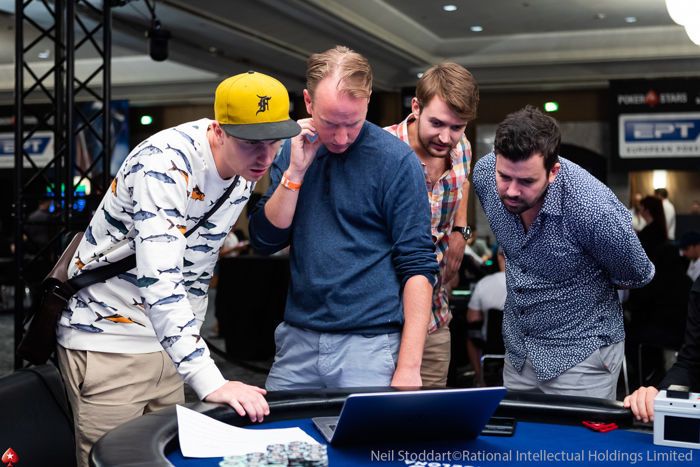
Say you are one of four players left in a no-limit hold'em tournament that cost you $135 to play, and let's say the remaining prizes are:
- $4,000 for first
- $2,500 for second
- $2,000 for third
- $1,500 for fourth
All four of you are guaranteed at least $1,500, which isn't such a bad return on your $135 investment. But you're all also eyeing that $4,000 prize, too.
If you're the chip leader with four left, you stand to have a better chance of getting that first prize than do the other players.
But should you suffer an unlucky hand or two, you might find yourself the short stack and then in danger of going out in fourth.
It's the knowledge of the risks associated with tournament poker — and the significant role chance does play, especially at the end of a tourney when the blinds tend to be high and more often than not players have found it needful to edge over into an 'all-in-or-fold' strategy — that encourages some players to want to make deals to divide the remaining prize money rather than play out a tournament.
Making a deal is like buying insurance. You give up something, but you protect yourself against losing more later, as could happen if you bust in fourth and don't get any more of the remaining prize money up for grabs.
Deal Making / Chopping FAQ
What is a deal in poker?
A deal (or chop) refers to an agreement the players make to redistribute the remaining prize money between those still in play. For a deal to be effective, the agreement has to be accepted by all players.
What is 'ICM Deal' in poker?
An 'ICM Deal' is the most complex to calculate but also the most fair deal-type players can make in a poker tournament. The ICM Chop takes into account all the possible scenarios and re-distribute money accordingly.
How is ICM calculated?
The calculation of an ICM Deal in poker takes into account elements like:
- The number of players in play
- The stack of each player
- The total prize pool
- The tournament's payout structure
To learn the mathematical model to calculate an ICM deal in a poker tournament, see this example.
Konstantinos "Duncan" Palamourdas is a math professor who specializes in the mathematics of poker. When not at the poker tables, Duncan can be found teaching poker classes at UCLA extension to people of all levels. His passion for simplifying complex poker concepts has also led to a poker book titled "Why Alex beats Bobbie at Poker". You can follow Duncan on Twitter @AskTheMathDr.
We also thank Martin Harris for the description of the ICM deals. Harris is the author of Poker & Pop Culture (D&B Poker Publishing) and has been PokerNews Associate Editor and Head of Strategy Content for nearly 15 years.

